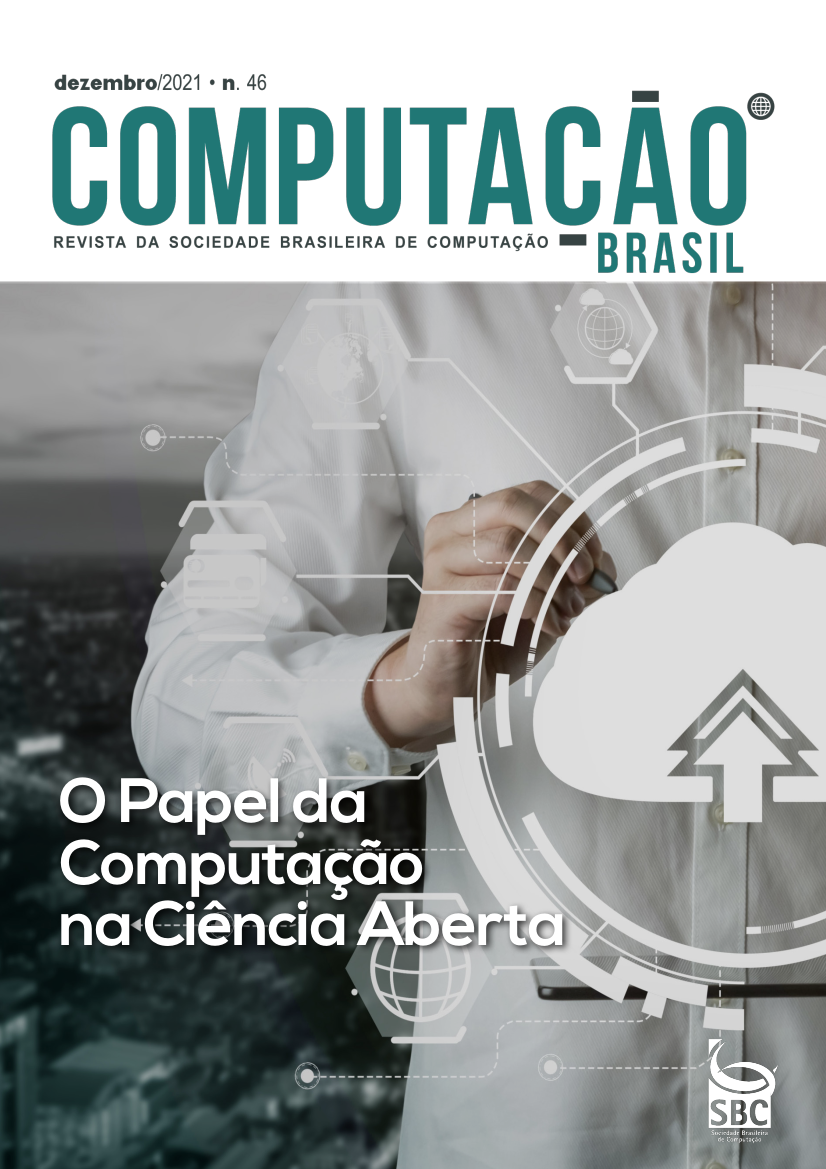
Photo reproduction of the issue front cover
In a special edition of Revista Computação Brasil, dedicated to Open Science and edited by Prof. Claudia Bauzer Medeiros, specialists from the country point out and contextualize issues that are intrinsic to the effective development of collaborative research in the country as well as in the world. Their aim was to show how Open Science can be possible, comprehensive, and sustainable. Members of INCT InterSCity made their contributions with 3 articles included in issue 46 of the journal, published in December 2021.
Christina von Flach (UFBA) and Fabio Kon (InterSCity), in the article “FREE SOFTWARE: PREREQUISITE FOR OPEN SCIENCE”, give us the scenario of the birth and growth of free software in Brazil, and how the strengthening of its culture is urgent and necessary for the appropriation of Open Science practices, in academia and beyond.
The article on page 20 “COMMON CITIZENS HELPING IN THE FIGHT AGAINST THE DEFORESTATION OF TROPICAL FORESTS” introduces the concept of Citizen Science and its importance in Open Science practices, and it gives us the example of the INCT InterSCity project “ForestEyes”, for volumetric monitoring of forests. Fernanda BJR Dallaqua (ICT/Unifesp), Álvaro L. Fazenda (InterSCity), and Fabio A. Faria (ICT/Unifesp) identified how Open Science can be fed back by the practices of Citizen Science, boosting the dissemination and appropriation of knowledge by non-expert members of society, while providing ammunition for research with significant volumes of data.
“COVID-19 DATA SHARING/BR: A SUSTAINABLE INFRASTRUCTURE FOR OPEN RESEARCH DATA” describes the endeavor, coordinated by FAPESP with infrastructure provided by USP, to make data files available securely and within specific parameters in the healthcare sector to hundreds of researchers in the race to understand the pandemic. Fátima LS Nunes (USP) and João Eduardo Ferreira (InterSCity) highlight that the standardization of data, the availability of tools (free SW), and WEB interfaces for data management were essential to guarantee, in a short time, the viability of research with geographically remote collaborators, within the precepts of Open Science.
To access issue 46 of Revista Computação Brasil and read the whole texts (PT-BR) |online |journal, pdf|
Text by Edina Arouca